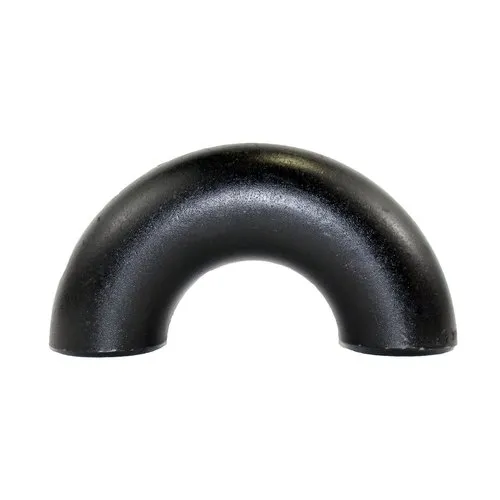-
Cangzhou Yulong Steel Co., Ltd.
-
Phone:
+86 13303177267 -
Email:
admin@ylsteelfittings.com
- English
- Arabic
- Italian
- Spanish
- Portuguese
- German
- kazakh
- Persian
- Greek
- French
- Russian
- Polish
- Thai
- Indonesian
- Vietnamese
- Zulu
- Korean
- Uzbek
- Hindi
- Serbian
- Malay
- Ukrainian
- Gujarati
- Haitian Creole
- hausa
- hawaiian
- Hebrew
- Miao
- Hungarian
- Icelandic
- igbo
- irish
- Japanese
- Javanese
- Kannada
- Khmer
- Rwandese
- Afrikaans
- Albanian
- Amharic
- Armenian
- Azerbaijani
- Basque
- Belarusian
- Bengali
- Bosnian
- Bulgarian
- Catalan
- Cebuano
- China
- China (Taiwan)
- Corsican
- Croatian
- Czech
- Danish
- Esperanto
- Estonian
- Finnish
- Frisian
- Galician
- Georgian
- Kurdish
- Kyrgyz
- Lao
- Latin
- Latvian
- Lithuanian
- Luxembourgish
- Macedonian
- Malgashi
- Malayalam
- Maltese
- Maori
- Marathi
- Mongolian
- Myanmar
- Nepali
- Norwegian
- Norwegian
- Occitan
- Pashto
- Dutch
- Punjabi
- Romanian
- Samoan
- Scottish Gaelic
- Sesotho
- Shona
- Sindhi
- Sinhala
- Slovak
- Slovenian
- Somali
- Sundanese
- Swahili
- Swedish
- Tagalog
- Tajik
- Tamil
- Tatar
- Telugu
- Turkish
- Turkmen
- Urdu
- Uighur
- Welsh
- Bantu
- Yiddish
- Yoruba

Dec . 10, 2024 04:43 Back to list
Leading Manufacturers of Industrial Flanges for Optimal Performance and Reliability
Understanding Industrial Flanges and Their Manufacturers
Industrial flanges are crucial components in various sectors, including oil and gas, chemical processing, and water treatment. These devices serve as mechanical joints that allow for the connection of pipes, valves, and pumps, ensuring a secure and leak-proof product. Given their significance, the role of manufacturers in producing high-quality flanges cannot be overstated. This article explores the types of flanges, materials used, manufacturing processes, and the importance of choosing reputable flange manufacturers.
Types of Industrial Flanges
Flanges come in a variety of shapes and sizes, each designed to meet specific applications. The most common types include
1. Weld Neck Flanges These flanges are designed for high-pressure applications and facilitate easy alignment of pipes. 2. Slip-On Flanges Preferable for low-pressure applications, these flanges are easy to install and require welding for sealing. 3. Blind Flanges Utilized to close the ends of pipes, blind flanges help in testing the pressure of the piping system. 4. Socket Weld Flanges Ideal for small diameter pipes, they are used in high-pressure applications and are inserted into the flange socket before welding. 5. Lap Joint Flanges These flanges are used with a stub end and are adjustable, making them suitable for varying applications.
Each type of flange has its unique advantages, making it essential for industries to choose the right one according to their specific requirements.
Materials Used in Manufacturing Flanges
The materials used to manufacture flanges vary widely, depending on their application and environment. Common materials include
- Carbon Steel Known for its strength and durability, carbon steel flanges are commonly used in various applications, especially in industries where high strength is a requirement. - Stainless Steel Corrosion-resistant and capable of withstanding high temperatures, stainless steel flanges are preferred in chemical and food processing industries. - Alloy Steel These flanges offer excellent strength and resistance to wear, making them ideal for high-stress applications. - Exotic Materials In some cases, manufacturers will use materials like titanium or nickel alloys to provide superior resistance to corrosion and temperature extremes.
Manufacturing Processes
industrial flanges manufacturers

The production of industrial flanges typically involves several key processes
1. Material Selection Choosing the right material based on operational requirements and environmental considerations. 2. Cutting and Forming The selected material is cut into the desired shape and size. It can be formed through methods like forging or casting. 3. Machining This includes drilling holes and shaping the flange to meet specifications.
4. Finishing After machining, flanges undergo various finishing processes, such as polishing or coating, to enhance their durability and resistance to corrosion.
5. Quality Control Rigorous testing and inspection ensure that the flanges meet industry standards and are free from defects.
The Importance of Choosing Reputable Manufacturers
Selecting a reliable flange manufacturer is essential for several reasons
- Quality Assurance Reputable manufacturers adhere to strict quality control measures, ensuring that products meet safety and performance standards. - Expertise and Experience Established manufacturers often have years of experience and technical knowledge, enabling them to produce flanges that meet specific industry needs.
- Customization Many quality manufacturers offer customization options, providing flanges tailored to unique specifications.
- After-Sales Support A good manufacturer provides ongoing support and service, essential for any future maintenance or replacement needs.
In conclusion, industrial flanges play a vital role in various sectors, and their quality directly impacts system performance and safety. By understanding the types of flanges, materials used, and the importance of reputable manufacturers, industries can make informed choices that enhance their operations. As global demand for efficient piping systems grows, the role of flange manufacturers will continue to be pivotal in ensuring quality and reliability in industrial applications.
Latest news
-
ANSI 150P SS304 SO FLANGE
NewsFeb.14,2025
-
ASTM A333GR6 STEEL PIPE
NewsJan.20,2025
-
ANSI B16.5 WELDING NECK FLANGE
NewsJan.15,2026
-
ANSI B16.5 SLIP-ON FLANGE
NewsApr.19,2024
-
SABS 1123 FLANGE
NewsJan.15,2025
-
DIN86044 PLATE FLANGE
NewsApr.19,2024
-
DIN2527 BLIND FLANGE
NewsApr.12,2024
-
JIS B2311 Butt-Welding Fittings LR/SR 45°/90° /180°Seamless/Weld
NewsApr.23,2024










